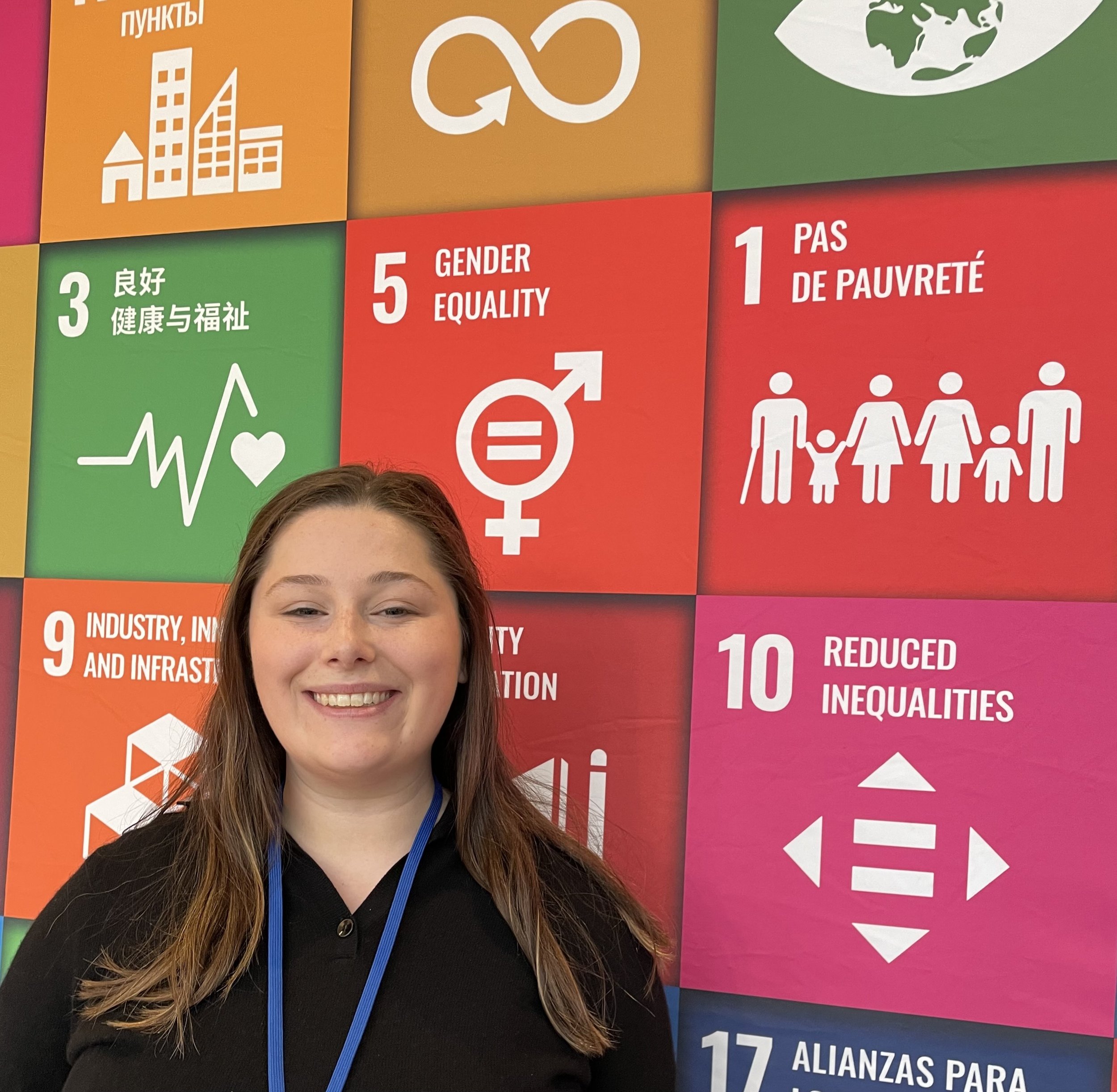Imagining 2040: A Practice in Climate-Optimism
Can you imagine the year 2040? Where will you live? What job might you have? What will the global climate look like? It feels far away, but 2040 is arriving far sooner than you might think.
Uncertainty about the future is one of the critical psychological barriers to climate action. Science and modelling might project a series of fairly accurate numbers that we can use to describe a probable future, but these projections aren’t concrete. Because of this, the human psyche easily justifies inaction. Can you visualize your life in a world with four feet of sea level rise, a very realistic scenario for the city of Boston? If collectively we cannot imagine the future that we aim towards, it’s difficult to believe that we will ever create the transformative change we need.
Read More
UN Water Conference: A Once in a Lifetime Experience
It was a once in a lifetime experience to attend the 2023 UN Water Conference in NYC. It was the first UN Water Conference in almost 50 years. Growing up in the San Francisco Bay Area, I became keenly aware of water quantity related issues at a young age. This sparked my interest in an environmentally based career centered around conservation, leading me to enroll at Tufts University. I was very excited to learn that I would be taking part in the conference and have the ability to apply my learning from the classroom to a real-world setting. The conference took place over the span of three days with main events located at the UN Headquarters. There were also side events located in the UN, as well as throughout New York City. I attended events that focused on transboundary water diplomacy, the intersection of water and climate, as well as WASH (water, sanitation, and hygiene). It was great to see people around the world come together to talk about water related issues.
Read More
Collaboration for Action: Hopeful Voices at the UN 2023 Water Conference
The problem of water is uniquely multi-faceted. Few resources are so simultaneously necessary for life, equally harmful in volumes that are both too large and too small, and conditional on engineered, political, social, and natural forces. Two years ago, I left my position as an environmental engineer to pursue a Master of Science at Tufts University, in a joint degree between the Urban Environmental Policy & Planning program and Environmental Engineering because I realized that we could not simply engineer our way out of many of the most complex environmental problems facing our communities. The problems require effective communication and collaboration between the many relevant disciplines and stakeholders. In March, the United Nations brought this challenge to the world stage during the UN Water Conference in New York City.
Read More
Private Sector Financing for Sustainable Water Management: Insights from the UN Water Conference 2023
Water is an essential element for achieving the Sustainable Development Goals (SDGs), as no single SDG can be accomplished without it. SDGs such as ending poverty (SDG-1), health (SDG-3), gender equality (SDG-5), climate change (SDG-13), and sustainable cities and communities (SDG-11) all depend on water. Therefore, without addressing the water crisis, it is impossible to achieve success with the SDGs.
To accelerate the implementation of water-related goals and meet the 2030 Agenda for Sustainable Development, the UN Water Conference was held on March 22-24, 2023. This conference was a platform for various stakeholders, including governments, UN agencies, civil society organizations, academia, and the private sector, to share their experiences, best practices, and innovative solutions for sustainable water management.
Read More
Reimagining International Relations: Takeaways from the UN Water Conference 2023
The UN Water Conference 2023 was a surprise on many accounts. The most obvious surprise is that this was the first such conference in 46 years. Given human dependence on water, this appears to be a striking blindness that gives weight to a sentiment shared by H.E. Mr. Ursell Arends, the Deputy Prime Minister and Minister of Transport, Integrity, Nature and Senior Affairs of Aruba: the ubiquity of available water inspires in us a false sense of security. In light of the global and local issues highlighted over three days of the conference, it is apparent to me that any water-related sense of security is indeed unfounded.
Read More





